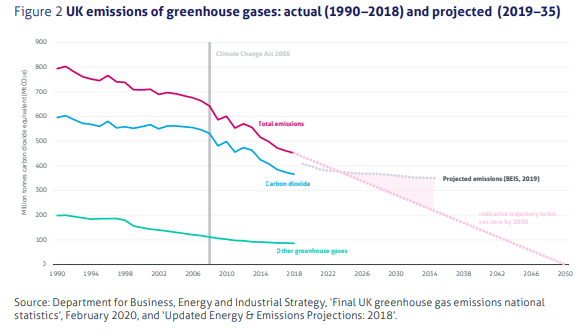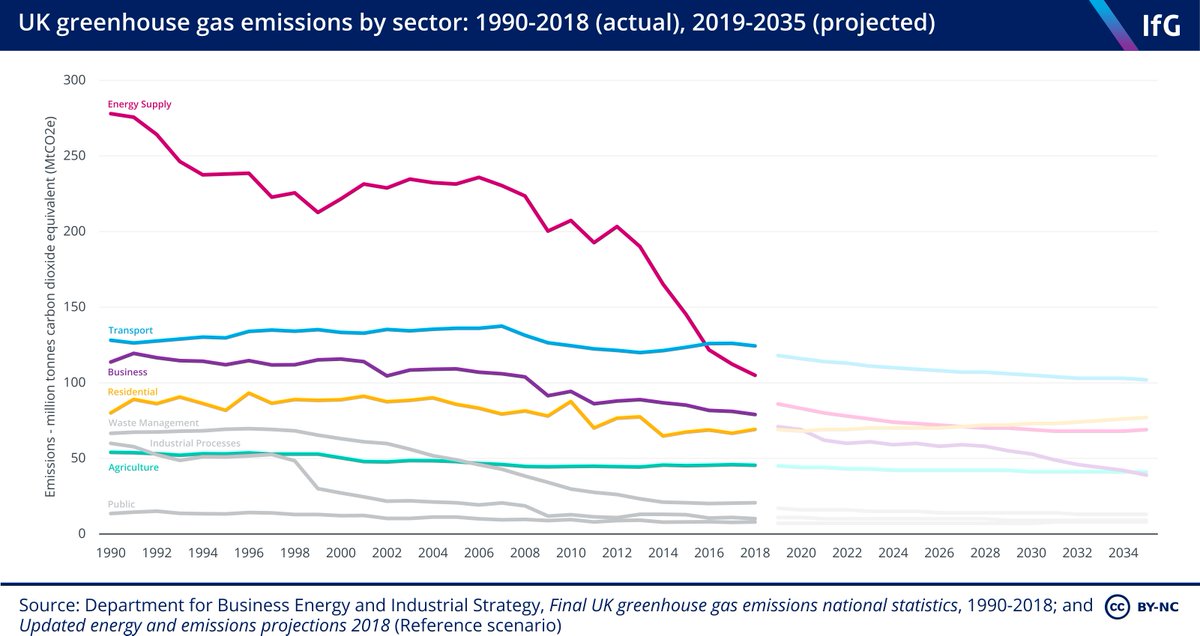
1/ What might an effective energy saving campaign look like? A quick thread on what other countries are doing and what’s missing in UK... in short we probably need:
❌Good public information
❌Comms campaign
❌Free advice
❌Good public information
❌Comms campaign
❌Free advice
2/ The foundation is obviously good information. Needs to be accessible, simple, authoritative. Ministers have been pointing towards GOV.UK in recent days – so what’s there?
Well just 1 page, which leaves a lot to be desired... gov.uk/improve-energy…

Well just 1 page, which leaves a lot to be desired... gov.uk/improve-energy…


2/ It's actually a form version of EPC rating guidance on things like insulation, double glazing. As others noted, very limited and not at all helpful for getting through this winter...
https://twitter.com/Adam_Grant_Bell/status/1554056330935140352?s=20&t=4N1bI2vNNAcBP05RwcNTsA
3/ And that's before you get to the fact that no one even knows its there (asking people to search GOV.UK does not suggest ministers have consulted any behavioral experts - or ever tried to find anything on it themselves...)
4/ For comparison – here is the German govt website: what’s immediately notable is several rationales for action (appealing to different audiences) and links to further information and simple advice, covering thermostats/lighting/showers etc etc...
bmwk.de/Redaktion/EN/D…
bmwk.de/Redaktion/EN/D…

5/ That leads to a campaign page and further reasons to act. Clear effort to foster a sense of national effort (not ‘green’ or ‘hairshirt’)
Can obviously then promote this type of messaging through digital advertising/media to reach a wide audience…
Can obviously then promote this type of messaging through digital advertising/media to reach a wide audience…

6/ UK could also look to Japan, which has had decades of experience encouraging people to be more energy efficient (since 1970s oil crisi).
Here is Tokyo campaign from September – again, lots of info/practical tips, different ways of reaching people... kankyo.metro.tokyo.lg.jp/climate/home/e…

Here is Tokyo campaign from September – again, lots of info/practical tips, different ways of reaching people... kankyo.metro.tokyo.lg.jp/climate/home/e…


7/ This is a more extreme example (from US last year), but interesting on what's possible with clear simple message, right means of communication etc - obviously requires preparation... bbc.co.uk/news/technolog… 

8/ All of this could be replicated very easily / cheaply in UK, and (as @Samfr says) would pay back many times over. Govt has the info already (and can draw on external orgs currently trying to fill the gap)
https://twitter.com/Samfr/status/1578147767955771392
9/ Clearly some nervousness about 'nannying' but that needn't stop you making sure everyone knows how to reduce energy use *if they want to*. Just need a decent comms teams and politicians willing to do it.
10/ The one thing that might take longer is offering free expert advice. This is important for giving people who need it confidence (and mitigating risks, like people dying in underheated homes). But funding has been cut and would need to rebuild capacity
11/ Citizens Advice has been doing a brilliant job on a shoe string, as have some local authorities. A quick/easy step wld be to support that. Both more trusted than UK politicians or energy companies. Suspect same true of Ofgem/NG? ENDS
As a footnote, worth highlighting some great examples from people outside govt, eg:
Energy Saving Trust on impact of different actions energysavingtrust.org.uk/hub/quick-tips…
Nesta have designed a great tool/campaign on changing boiler flow temps moneysavingboilerchallenge.com

Energy Saving Trust on impact of different actions energysavingtrust.org.uk/hub/quick-tips…
Nesta have designed a great tool/campaign on changing boiler flow temps moneysavingboilerchallenge.com


Good that these orgs are trying to fill a vacuum, but not realistically going to have scale/reach to move the dial in the way a serious govt campaign could...
• • •
Missing some Tweet in this thread? You can try to
force a refresh









